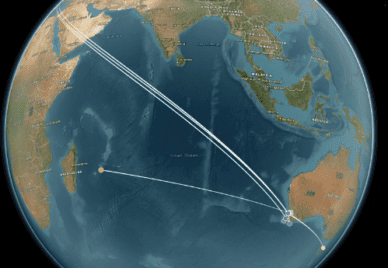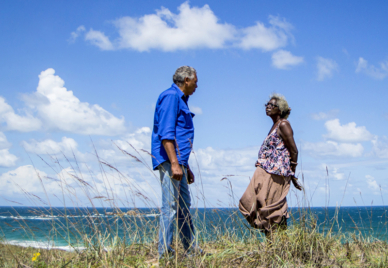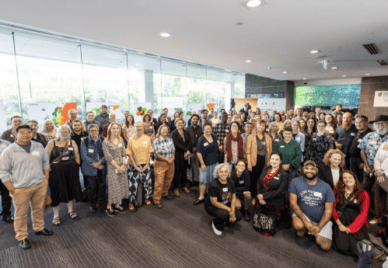HASS and Indigenous Research Data Commons
About the HASS and Indigenous Research Data Commons
In collaboration with Indigenous Australians, the research community, industry and government, the HASS and Indigenous Research Data Commons (HASS and Indigenous RDC) is harnessing research data to enhance Australian social and cultural wellbeing, and help Australia understand and preserve our culture, history and heritage.
New digital platforms and data directories will improve how researchers discover and access Australia’s rich HASS and Indigenous data and innovative analysis tools. The program is also upskilling researchers to use data-driven approaches to HASS and Indigenous research, ensuring Australian researchers gain a competitive advantage through data.
As an engine for research translation, the HASS and Indigenous RDC will enable researchers to develop and sustain cross-sectoral and multidisciplinary data collaborations at a national scale through federated models. It integrates the ARDC’s services for compute, storage infrastructure, persistent identifiers and data discovery with analysis platforms and tools that are supported by expertise, standards and best practices.
HASS and Indigenous research is research about people. It guides and informs government and community service decisions, drives innovation, creates new industries and regulatory frameworks, and helps us to understand and preserve our culture, history and heritage.
Digital tools, techniques and methods are enablers of innovative HASS and Indigenous research.
The 2016 National Research Infrastructure Roadmap identified opportunities to accelerate the impact of HASS and Indigenous research. It recommended improving the overall coordination of research infrastructure that supports access to, and analysis of, physical and digital collections using tools such as digitisation, aggregation and interpretation platforms.
The Australian Government Department of Education subsequently commissioned 3 studies that identified a number of investment-ready programs that would benefit from national research infrastructure funding.
Download the scoping studies from:
While not all recommendations within those scoping studies were funded at the time, the activities earmarked to participate in the initial round of development displayed an advanced state of readiness to participate in and benefit from a HASS and Indigenous RDC.
In 2023, the ARDC-led HASS and Indigenous RDC received the largest ever investment in HASS research infrastructure in Australia. The $25 million grant from the Australian Government’s 2023 National Collaborative Research Infrastructure Strategy (NCRIS) Funding Round, along with co-investment from national partners, will continue to deliver long-term, enduring national digital research infrastructure to support HASS and Indigenous researchers in Australia.
The HASS and Indigenous RDC is accelerating research by helping institutions share data more freely, ethically and cooperatively, following the FAIR and CARE data principles as well as Indigenous data governance protocols.
The program brings together existing and ongoing investments in text analysis, cultural collections, linguistics, social sciences and Indigenous data.
The infrastructure will enhance research in a broad range of fields including:
- linguistics
- social sciences
- education
- Australian cultural studies
- history
- Indigenous studies
- economics
- commerce
- tourism
- creative arts
- law and legal studies.
Our Work
Explore the programs and projects we lead under the HASS and Indigenous RDC.
Collaboration
This program is guided by expert representatives from relevant national and international bodies in the HASS and Indigenous research domains:
Target Outcomes
Our Impact
We have been supporting world-class HASS and Indigenous research with real-world impact through the HASS and Indigenous RDC. Read case studies of some of these efforts:
Resources for Researchers
The HASS and Indigenous RDC builds on the ARDC’s experience working in partnerships to deliver digital research infrastructure for HASS and Indigenous researchers, which has culminated in a wide range of datasets, free tools and upskilling materials. Explore these resources.

















